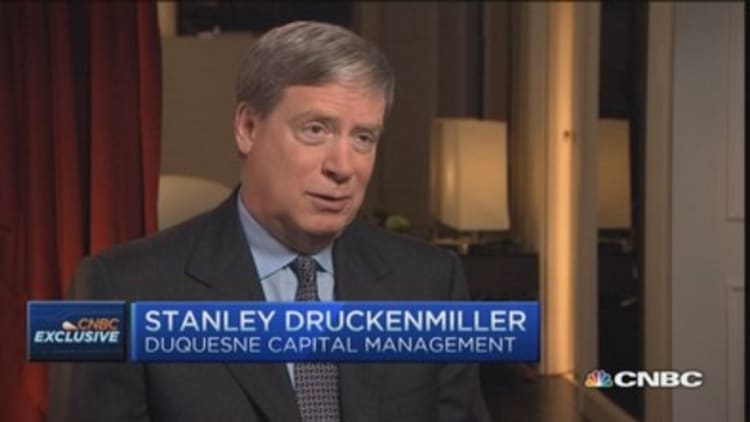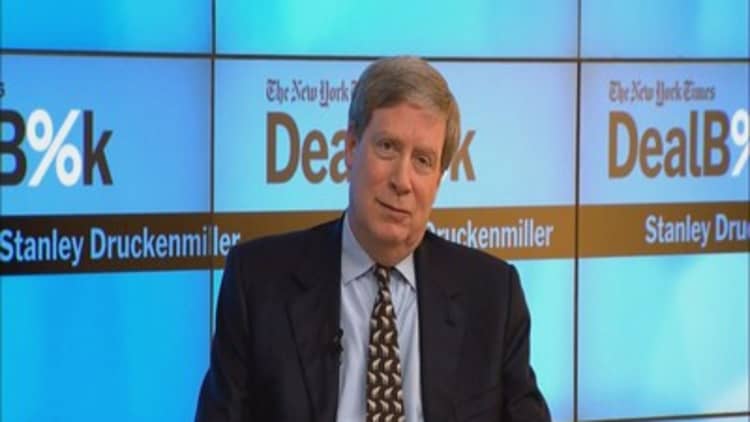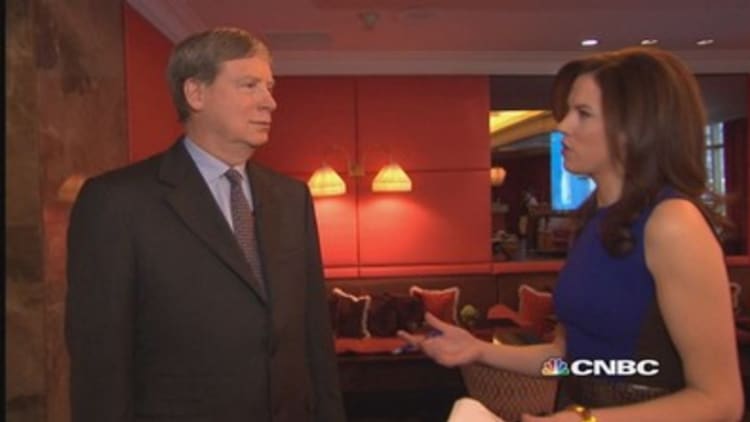



The economy is unlikely to reach "escape velocity" due to the influence of Federal Reserve and other central banks' policies, billionaire investor Stanley Druckenmiller said Wednesday.
"We have pulled so much demand forward and borrowed so much from our future, so much financial engineering has gone on," the former Duquesne Capital Management chairman and president told CNBC's "Squawk Box."
Druckenmiller said he can't see the U.S. economy breaking free of sluggish growth any time soon.
"This idea that we're going to have escape velocity in the economy, I just don't see it," he said. "At best we're going to muddle through," he said.
The U.S. economy grew by 1 percent in the fourth quarter of 2015, according to the second of three readings released last week by the Bureau of Economic Analysis.
Druckenmiller said the market was overvalued heading into last year, following "huge" liquidity support for a number of years. But that support is now dissipating as China and Saudi Arabia scale back purchases of Western assets, he said.
"The Fed stopped injecting, so I think it's just the natural outgrowth — the markets themselves — the natural outgrowth of this cessation of liquidity," he said.
The Fed held interest rates near near zero from December 2008 until a meeting of its policymaking committee in December, when they raised interest rates by 25 basis points. With bonds yielding little return, investors have flocked to stocks, raising concerns about misallocation of capital and bubbles.





